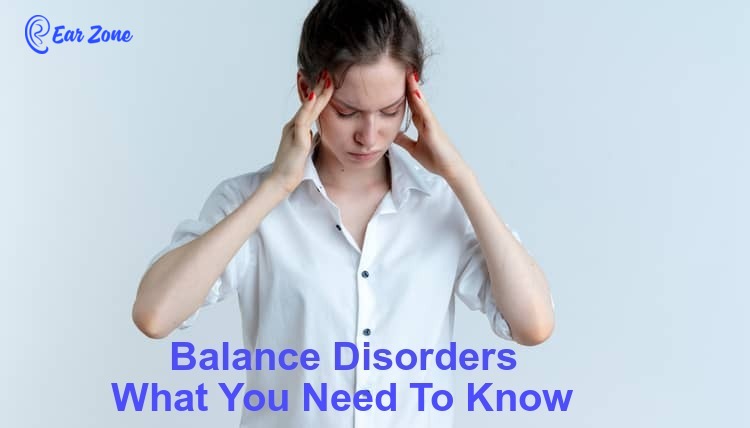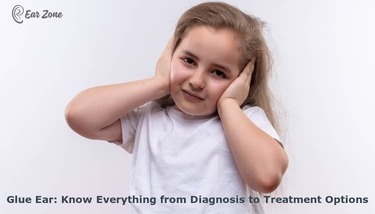Are you tired of the constant discomfort and annoyance caused by itchy ears? It’s a frustrating and uncomfortable sensation that can disrupt your daily life. Do you have an itchy ear canal, an itchy ear lobe, or an itchy inner ear? Finding relief is essential. This article will explore the causes, remedies, and prevention methods for itchy ears. Keep reading to understand the underlying reasons and discover simple home remedies that you can try right away to find the best solution for you.
What Causes Itchy Ears?
Itchy ears can be caused by various factors, including medical conditions and a lack of ear hygiene. Some common causes of itchy ears and home remedies are explained below.
Dr Ballachanda 1 and Dr Chin 2 suggest that people with itchy ears should start with simple remedies such as using a few drops of baby oil or olive oil, or over-the-counter eardrops.
Dry Itchy Ears or Dry Flaky Ears
The glands in our ear produce earwax and oil to keep the skin of the ear lubricated and healthy. If your ears do not produce enough earwax or if you clean your ears too often, it may result in dry skin in the ears.
Home Remedy for Dry Ears
- Clean your ears with a soft cloth to remove dead skin if any. Avoid aggressive cleaning or using rubbing alcohol as it will increase dryness.
- If the dry flaky skin is due to a fungal infection, use antifungal ear drops or cream.
- Apply petroleum jelly or skin moisturizer; a drop of baby oil or olive oil is a good dry ear home remedy. Creams containing lactic acid are highly effective.
Itchy Ears Due to Earwax
Earwax buildup is one of the causes of itchy ears. Generally, less earwax causes dry itchy ears, but earwax buildup is also a cause of ear itch. Earwax produced in the ear keeps the skin moist and traps foreign particles. The earwax collects dust and dead skin over time, this earwax buildup causes irritation and itching.
Home Remedies for Earwax Removal
The idea of using over-the-counter earwax softeners or natural oils is to soften the earwax so that it slides out without much effort. The following liquids work as effective earwax softeners:
- Hydrogen peroxide
- Baby oil
- Coconut oil
- Glycerin
- Mineral oil
- Olive oil
- Saltwater
Note:
Consult a professional earwax cleaning service if the earwax is compacted.
Do not attempt earwax removal at home if you have an ear infection, eardrum perforation, or tinnitus.
Avoid using Q-tips, you may end up pushing the earwax deeper into the ear canal.

Itchy Ears Allergies
Many people suffer from itchy ear allergies, such as hay fever or allergic rhinitis. This is one of the most common allergies, and it affects not only the nose but also the ears and throat, causing itchiness and soreness.
You may get an allergy if you are exposed to the following:
- Pollen
- Hair and dry skin shedding of pet cats or dogs
- Mold (Type of fungus)
- Dust mites
- Irritants, such as smoke or perfume
Home Remedies for Itchy Ears Allergies
- Antihistamines are anti-allergy medicines; the popular ones are Benadryl and Cetirizine.
- Stay away from pets and smokers.
- Avoid going out during the pollen season.
- Clean sheets and upholstery to get rid of dust mites.
- Vitamin D – increase exposure to sunlight or consume supplements.
- Quercitin: A natural flavonoid found in onions, grapes, berries, cherries, broccoli, and citrus fruits. Quercetin inhibits the production and release of histamine and other allergic and inflammatory substances 3
- Vitamin C-rich food
- Sinus rinse or nasal irrigation 4
Food Allergies That Cause Itchy Ears
The immune system of some people reacts to certain food products, causing skin reactions all over the body. Although food allergies cause various reactions, such as rash, hives, and redness on the face and body, they also cause ear itching.
Foods That Cause Itchy Ears
The likelihood of itchy ears after eating the following foods is high.
- Nuts
- Milk
- Fish and shellfish
- Wheat
- Soy
Home Remedies for Food Allergy Itching
- Antihistamines help in mild reactions: severe reactions with symptoms such as breathlessness, difficulty speaking, or dizzy spells should be treated as a case of a medical emergency as it can be a case of anaphylaxis 5.
- Ginger Tea: Ginger blocks histamine or functions as a natural antihistamine. Ginger aids digestion and helps in digesting the food that triggered the allergic reaction.
- Probiotics: foods like Yogurt, Kefir, Sauerkraut, Kimchi, etc are rich in probiotics. They help balance gut bacteria and reduce the effects of food allergies.
- Lemon or Green tea: Both have anti-inflammatory properties and contain antioxidants that strengthen the immune system.
Skin Allergies
Have you changed your soap or shampoo recently? Stop using the new product and observe if the itchy ear sensation has subsided.
Itchy Ear Psoriasis
Psoriasis is an autoimmune disease that accelerates the skin life cycle. Accumulated dead skin causes itchy outer ears and red patches.
Ear Eczema
Ear eczema can cause itching around the ears, inside the ear, and on the earlobes too.
Seborrheic Dermatitis of the Ear
Seborrheic Dermatitis of the ear is a skin rash that causes ear canal itching and flaking.
Contact Dermatitis or contact eczema occurs when the skin comes in contact with something that causes a reaction. Jewelry, cosmetics, soaps, and shampoos are some reasons.
Home Remedies for Skin Allergies
- Wash your ears with warm water before retiring
- Apply moisturizers after bathing to retain moisture
- Avoid using jewelry, if that is the cause
- Use over-the-counter anti-itch creams
- Use cosmetic products that suit your sensitive skin
If home remedies do not work, visit a dermatologist for treatment. These skin diseases not only cause itchy ears inside but also itchy ears outside and sometimes itchy behind the ears too.
Itchy Ears Due to Ear Infection
Swimmer’s ear, also known as otitis externa, is an infection of the outer ear. It is caused by the presence of water in the ears. The bacteria multiply in wet and damp ears causing infection.
Read our article on 9 symptoms of ear infection in babies.
Remedy For Swimmers Ears
Swimmer’s ear is a bacterial infection and is a cause of itchy outer ears. Keep your ears dry or use earplugs while swimming to keep water out. You can also use a homemade mixture of mineral oil and hydrogen peroxide as eardrops.
Itchy Ears from Wearing Hearing Aids
New hearing aids cause itching, the possible reasons are:
- Sensitive skin: If this happens with your new hearing aid, gradually, your skin will become accustomed to the new object in your ear.
- Improper earmold fit: Chances of a bad fit are rare as your Audiologist is a trained professional, but it could be a possibility.
- You sweat and the hearing aid or dome remains moist inside. This could lead to bacterial growth. Read our article on The Best Hearing Aid Maintenance Guide – Checklist and Tips to clean earmolds and Domes.
- You have a history of ear eczema or psoriasis.
Hearing Aid Ear Itch Relief
- The earmold material is generally safe and does not cause skin reactions. If you are still facing itchy ear canal issues, insist on an earmold made with a hypoallergenic material such as medical-grade silicone.
- Request your audiologist to recheck the earmold fitting; the audiologist will take a new ear impression if the earmold does not fit well.
- Keep your ears dry and clean the earmolds regularly to avoid bacterial growth.
- Apply a moisturizer or antibiotic cream after you remove the hearing aids for the day. Do not apply lubricant or any cream before inserting the earmold or dome into the ear canal. The cream can damage the hearing aid receiver.
- Clean your ears and hearing aid before inserting them into the ear.
When Should You Visit a Doctor for Itchy Ears?

You should consider visiting a doctor if you observe the following.
- There is no reduction in itching in your ears or it worsens despite trying home remedies or over-the-counter treatments.
- You experience pain or discomfort along with itchy ears.
- You notice redness, swelling, discharge, congestion, or peeling of ear canal.
- You frequently experience itchy ears or the ear itch has become chronic.
Itchy ears can be a bothersome and uncomfortable condition. Whether you opt for home remedies, over-the-counter treatments, or seek medical advice, finding the right solution for you is essential.
References:




